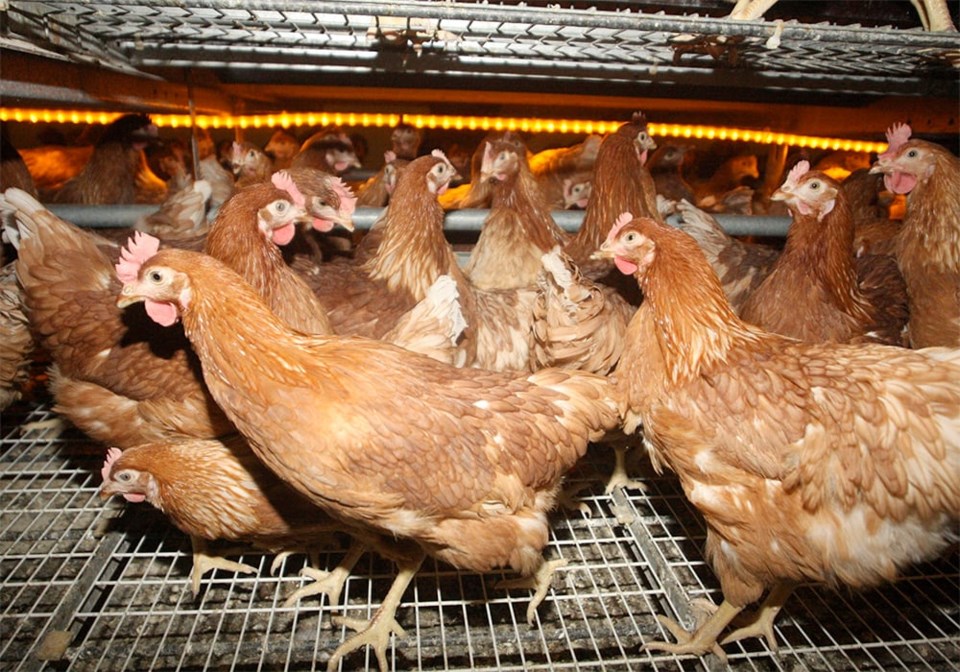American animal rights groups achieved a victory May 11 when the U.S. Supreme Court upheld California’s Proposition 12.
Also known as the Prevention of Cruelty to Animals Act, Prop 12 establishes minimum space requirements to be provided for egg-laying hens, breeding pigs and calves raised for veal. California businesses will be banned from selling eggs and uncooked pork or veal that comes from animals housed in ways that do not meet these requirements.
Prop 12 dictates that pigs must have 24 sq. feet of “usable” floor space per animal, which applies to gilts at breeding, weaned sows and gestating gilts and sows.
The proposition was appealed first at U.S. District Court and then at the U.S. Court of Appeals, and both courts sided with the state of California.
The U.S.-based National Pork Producers Council and the American Farm Bureau Federation then appealed to the U.S. Supreme Court last year. The Canadian Pork Council and a national coalition from Mexico and Illinois Pork Producers filed an argument supporting that appeal.
Gary Stordy, a former CPC director, said the law would affect Canada’s pork industry, which exported nearly five million feeder pigs, more than 1.5 million market hogs and more than 1.4 million tonnes of finished pork products to the United States in 2021.
The effects of this ruling will have a ripple effect on the Canadian pork industry.
The Humane Society of the United States, which was among the animal welfare groups that brought Prop 12 forward, calls it the “strongest law in the world for farm animals.”
That should worry the industry. The legal win could set a precedent, according to Michigan State University law professor David Favre.
He wrote in a May 15 opinion piece for The Conversation that “while the ruling was fractured and reflected complex legal questions, it is a major victory for those working to improve farm animal welfare. Several states will undoubtedly take advantage of the power that the Supreme Court has recognized.
“As a specialist in animal law, I expect that this will result in a patchwork of laws that are likely to make national meat producers very uncomfortable. Ultimately, it could push Congress to set federal standards.”
Favre highlighted reasons justices rejected the pork industry’s position. Some did not think pork producers proved the law would interfere with interstate commerce, and some believed that even if there was interference, “it was inappropriate to ask courts to balance compliance costs for the industry against California voters’ moral concerns about animal welfare.”
“While the constitution addresses many weighty issues,” Justice Neil Gorsuch wrote for the majority, “the type of pork chops California merchants may sell is not on that list.”
Favre said he expects Congress to enact national legislation on farm animal welfare issues within the next five years to pre-empt differing state laws, but that “farmers and animal welfare advocates understand that with this win, states with the most progressive animal welfare policies — primarily west coast and northeastern states — will be able to effectively set national standards for the well-being of many agricultural animals, including chickens, dairy cows and cattle.”
Improving animal welfare standards is the right thing to do, but it must be done with both the animals and the producers in mind.
Changes to housing cannot be made overnight and they come with costs — to producers and consumers.
The situation in the North American pork market is tenuous. Processor margins are tight, some have scaled back and producer input costs keep going up.
While the ultimate agenda of some animal welfare advocates is to end animal agriculture outright, most supporters want to consume animals they feel have been raised under what they consider to be “ideal” conditions.
This “ideal,” however, needs greater balance.
Kristy Nudds is the editor of Farmtario.



